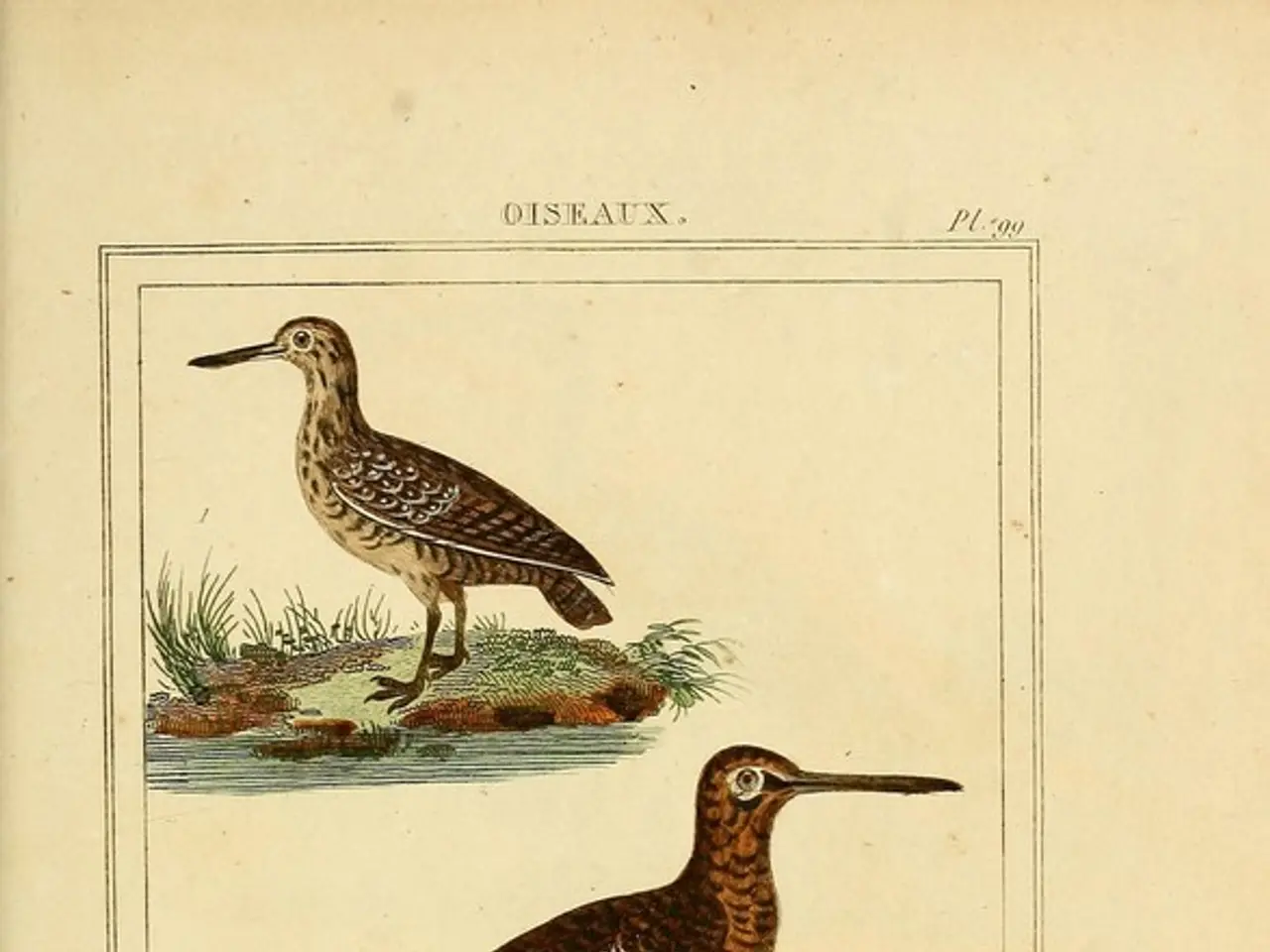Tropical birds face severe heat threats, with experts voicing alarm, not just in disturbed habitats, but also in pristine forests.
In a chilling revelation, a recent study published in the prestigious journal Nature Ecology and Evolution has found that tropical bird populations have declined by 25-38% since the 1950s, primarily due to the increasing frequency and intensity of extreme heat events driven by climate change.
The study, led by James Watson, a professor in conservation science at the University of Queensland, combined long-term monitoring data of over 3,000 bird populations worldwide with climate attribution techniques to isolate the effects of extreme heat from other factors such as habitat loss or average temperature shifts. The research found that exposure to heat extremes (temperatures which exceeded the 99th percentile) led to a reduction in bird populations at latitudes below 55 degrees north or south, with the most extreme effects felt in the tropics, meaning latitudes below 23 degrees.
One of the key impacts of extreme heat on tropical birds is excess mortality due to heat stress and dehydration. Additionally, reduced fertility and changes in breeding behaviors, lower offspring survival rates, and species being forced out of their historically adapted ranges rapidly are other concerning trends.
The study's findings underscore the vulnerability of species with small populations and narrow temperature niches to climate change. For instance, in two undisturbed rainforests in Panama and the Amazon, bird populations declined by more than 50% for the majority of species between 1977 and 2020, and between 2003 and 2022, respectively.
Golo Maurer, the director of bird conservation strategy at Birdlife Australia, stated that the study serves as a "wake-up call" that climate change will affect protected areas and that species can't be assumed to be safe. Maurer, who has observed the effects of climate change on birds in his tropical home of north Queensland, Australia, where endemic birds are being forced to live at higher elevations, emphasised the need for immediate action to reduce greenhouse gas emissions and mitigate climate change as a major threat to biodiversity.
The study's results suggest that climate change will have a significant impact on biodiversity in tropical regions. As such, conservation efforts must address the impacts of climate change on tropical bird populations and biodiversity. Abating climate change, as a primary strategy, is crucial to saving tropical bird species, according to Watson.
The study adds to the growing body of evidence that climate change is a major threat to wildlife populations and ecosystems. It is the first to use climate attribution methods to directly link climate change-driven extreme heat to biodiversity loss, highlighting the urgent need for both habitat conservation and aggressive mitigation of greenhouse gas emissions to counteract these trends.
- The study, linking climate change-driven extreme heat to biodiversity loss, underscores the significance of environmental science and health-and-wellness of tropical bird populations.
- As the study reveals, combining climate change, heat extremes, and biodiversity loss in tropical regions could lead to mental-health concerns as future generations may witness the destruction of species and ecosystems, thus necessitating immediate action in environmental science.




